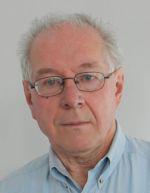

Dr Timothy Noakes
Stop Practicing the Medicine of Failure
 Dr Tim Noakes is fighting a battle to restore his personal reputation. He has been abandoned by his university and publicly chastised by them. He has been charged with unprofessional conduct by his peers in the health Professional Council of South Africa.
Dr Tim Noakes is fighting a battle to restore his personal reputation. He has been abandoned by his university and publicly chastised by them. He has been charged with unprofessional conduct by his peers in the health Professional Council of South Africa.
For Dr Noakes this is very personal. About 30 years ago his father was diagnosed with type 2 diabetes. Tim himself had just qualified as a medical doctor. The medical advice given to his father, was to "eat a prudent diet" which was supposed to be "heart healthy." This was the best medical advice at the time, but that advice was wrong. Noakes senior got progressively sicker, losing first one foot and then the other. Finally he lost this mind to the disease.
Dr Noakes says that the treatment widely offered to type 2 diabetics today is essentially the same. They are told they have an incurable disease. This is simply not so. Today we do have effective means of treatment for type 2 diabetes. But that treatment is seldom offered; "We prefer to practice the medicine of failure." says Dr Noakes.
If type 2 diabetics eat a very low carbohydrate diet their blood sugars become manageable and in most cases the symptoms of diabetes vanish. They get well again. "It's important that this message is widely disseminated," says Dr Noakes.
Diabetes Associations around the world are active in opposing this method of treatment. Choosing to ignore the evidence that it works.
In the current disciplinary trial, the medical establishment and the research community, seem to be lined up to discredit Dr Noakes. Critically, it seems that the parties driving the attack are not in the courtroom. Noakes says that too many people benefit professionally and financially if obesity, cardiovascular disease, diabetes and cancer remain a very complex and difficult diseases to treat. The main beneficiaries of the status quo are the food companies, and pharmaceutical companies, They are major sponsors of research and they promote the idea that diet is not a critical factor as the cause of these diseases.
These companies are sponsors of heart disease and diabetes associations around the world. Their purpose is to control the nutrition message.
Noakes has defended himself, spending days in court giving evidence. The prosecuting lawyers have worked hard to discredit him without success.
Noakes said, "A high-carbohydrate diet was detrimental to the health of people with insulin resistance. If that message is without scientific support, then this court will serve a useful purpose.” But he added: “Carbohydrate restriction in this group can be profoundly beneficial as it can reverse obesity and in some cases Type 2 diabetes mellitus – the two conditions that will ultimately bankrupt South African medical services unless we take appropriate preventive actions."
“If there is evidence for my position, then the faculty [and the Health Professionals Council of South Africa] is guilty of failing fully to inform its past and present science, medical and dietetics graduates in a manner that should be appropriate for a faculty that considers itself a world leader.”
Noakes believes that we have created an obesidemic environment, by creating dietary guidelines that are invalid, and by refusing to reexamine those guidelines when it's increasingly clear that they are harmful.